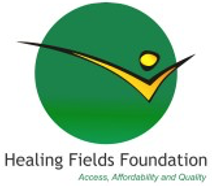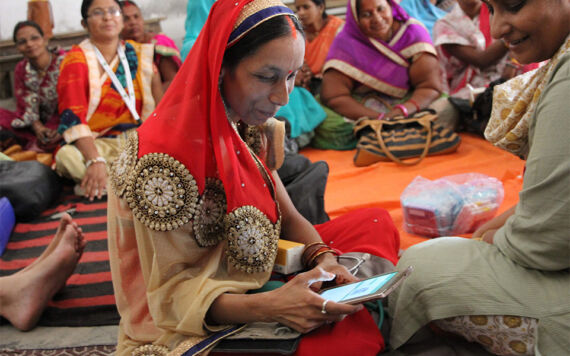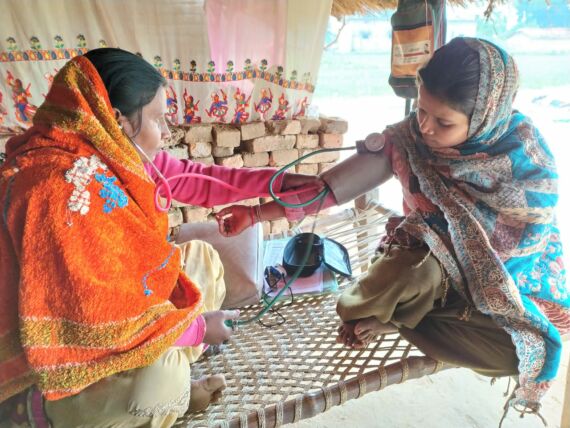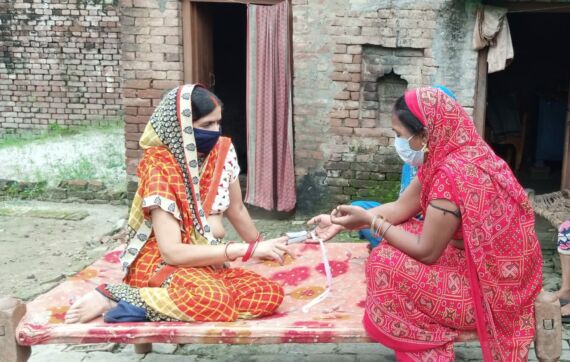| Project Name | Bringing Healthcare Access to Forgotten Villages |
| Commisioned by | German Federal Ministry for Economic Cooperation and Development (BMZ) |
| Country | India |
| Implementing Organisation | Healing Fields Foundation – healing-fields.org |
| Duration | November 2021 – April 2023 |
The Challenge
Improved Health through Hygiene Products: Primary health care covers basic health needs as it consists of essential services and products needed to prevent diseases, promote health, and manage illness. However, important hygiene products like sanitary napkins are rarely used in India, as for example, approximately 88 % of women use cloth and rags instead of sanitary napkins, which can carry bacteria leading to preventable illness.
Lack of Access in Rural Areas: The access to hygiene products in general is depending on affordability and accessibility. In rural areas of India health resources remain scarce. Barriers related to knowledge and awareness can be addressed by education, but barriers related to availability and cost are more difficult to overcome. Access by marginalized communities is further limited by economic, social and caste hierarchy. This discrepancy was further widened by the COVID-19 pandemic.
The Objective
The project aims to develop a continuum of care model by increasing access to tele-health and the creation of logistic supply chains that ensure availability of critical health and sanitation items at remote locations. In doing so, rural areas get connected to health resources.
The Target Group
The project targets women from underprivileged and marginalized communities who already work as Community Health Entrepreneurs (CHEs) to bring health education and lead behavioural change. The activities are implemented within the Ballia district of Uttar Pradesh (UP) and the Muzaffarpur district of Bihar. These districts have high concentrations of already active CHEs.

About Healing Fields Foundation
Healing Fields Foundation was founded in 2000 as a health-focused NGO, implementing its work in rural areas of poorer Indian states. Its vision is to build an eco-system that ensures access to affordable and quality healthcare for all, especially women from resource-poor communities. Healing Fields Foundation aims to achieve this vision by seeding and strengthening Community Health Leaders.
Website: healing-fields.org
The Approach
Scaling up Activities of CHEs: Around 2,500 Community Health Entrepreneurs already work across Uttar Pradesh and Bihar. They previously got trained on first aid, nutrition, sanitation, hygiene, menstrual health management, illnesses and diseases, and entrepreneurship. This project includes 100 CHEs in 200 villages, reaching 250,000 people from 50,000 families. Each CHE is responsible for two villages and conducts vitals and primary assessment of patients.
Implementing Tele-Consultation: The Recover Better Support Fund allows adding tele-consultation and critical supplies to the work of CHEs. Therefore, a tele-health mobile and web application is developed. It connects CHE with doctors and nurses, enabling them to bring professional healthcare and preventive services directly to their community. Based on the primary assessment of patients, the CHE either refers them to a hospital or connects the patients via tele-consultation to nurses and doctors. Follow-up examination and care services also carried out by the CHEs.
Establishing Supply Chains for Hygiene Products: Establishment of a supply chain through local bikers, supported by efficient technical solutions and coordinated through a network of distribution centres. Products in the chain include sanitary napkins, hand wash and toilet cleaner and will be expanded in response to demand of the community. The CHEs receive training on relevant entrepreneurial skills to expand their customer base and ensure entrepreneurial sustainability.
Achieved Results
- A tele-health mobile and web app was developed, tested, and is used by 110 doctors, nurses, and Community Health Entrepreneurs
- Women and adolescent girls from 60,096 families were educated on menstrual hygiene and have access to sanitary napkins
- 100 Community Health Entrepreneurs increased their income
- A logistical supply chain was created between 200 villages
Seema believes it is essential for women in the household to have a hands-on source of income. Personal income not only suppresses poverty but also brings women in the household respect, agency and dignity, thus suppressing gender inequality in the family. She says “my dream is to see this world as a space where men and women share equal rights, respect and access to care.”
Seema Devi




